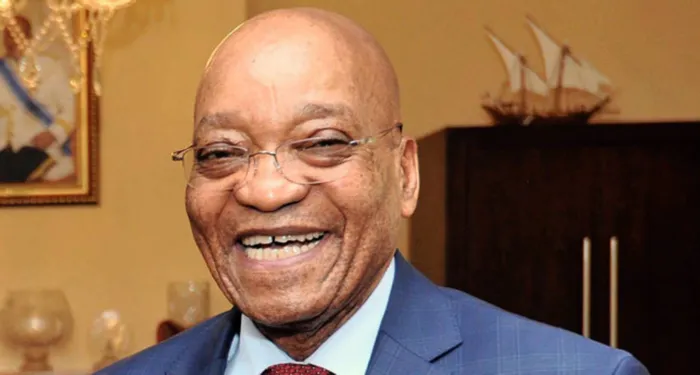Zuma will stay

President Jacob Zuma pays a courtesy call to King Letsie 111. President Zuma is in the Kingdom of Basotho to attend the inauguration of the newly elected Prime Minister Pakalitha Mosisili. 17/03/2015, Elmond Jiyane, DoC President Jacob Zuma pays a courtesy call to King Letsie 111. President Zuma is in the Kingdom of Basotho to attend the inauguration of the newly elected Prime Minister Pakalitha Mosisili. 17/03/2015, Elmond Jiyane, DoC
Johannesburg - The ANC lacks the political will and courage to recall President Jacob Zuma because he has the party in his clutches, despite the many blunders and scandals associated with him, analysts say.
And the ANC is specially projecting Zuma’s blunders as minimal as a “political calculation” to strengthen the party ahead of the local government elections.
This is after it emerged on Tuesday that Zuma had again come out unscathed at the ANC’s national executive committee (NEC) meeting in Pretoria at the weekend. A damning Constitutional Court ruling on Nkandla and allegations of state capture by Zuma’s controversial and powerful business friends, the Guptas, appeared to threaten his political career.
On Tuesday, however, the ANC announced that its branches had overwhelmingly affirmed the decision of the national working committee not to recall Zuma, following the Concourt ruling on the Nkandla matter.
On the allegations of state capture by the Gupta family, the ANC said an investigation on the matter became a “fruitless exercise” after only one person out of eight complainants was prepared to give a written submission.
Political analyst Professor Tinyiko Maluleke said the message was now clear that Zuma would not going anywhere, which was not surprising.
“This means the ANC NEC does not have courage or sufficient consensus to take any decisive action,” Maluleke said.
“The attempt to investigate the allegations of state capture by the Guptas through the secretary-general’s office seems to have failed dismally, and that should worry the party.”
Another analyst, Professor Susan Booysen, said while she did not expect the party to turn against Zuma, the outcome of the NEC meeting meant “Zuma is now firmly in control of the party”.
She added: “A big part of the ANC plan is to project his missteps as minimal, and this gives them strong inference going into local government elections. There may be differences in the party but Zuma’s grouping is in charge. This is the same group that put him in power, so if they take him out it would reflect on them as much as it did on the president.”
Booysen said this didn't mean there were no pressures inside, but that the party had made political calculations. She said it would take immense courage from anyone to submit written statements on state capture that would delegitimise their own political bosses.
ANC secretary-general Gwede Mantashe said branches of the party had emphasised the importance of unity and that accepting the president's apology must contribute to the party's unity.
“As we accept the apology, we also remind ourselves that we should devise a formula for dealing with the mistakes we are committing,” he said.
Mantashe added, however, that the allegations of state capture were serious and could not be treated lightly.
“The NEC has advised comrades to formalise their complaints to institutions that deal with complaints of this nature,” he said. “If people say we fear for ourselves and for our jobs if we come forward and disclose who we are, we may be targeted and they want an independent inquiry, we say go to institutions if you think that it's risky to raise issues with the ANC.”
Mantashe said there were many institutions that could be approached for investigation, including the SAPS, the auditor-general, the public protector and other Chapter 9 institutions.
He took aim at the four major banks that closed the accounts of the Gupta family's holding company, Oakbay Investments, saying the question of whether there was collusion had to be looked at.
“The capacity of the banks to close businesses at will without any obligation to disclose reasons is dangerous; it's too big a power given to institutions,” he said. “We must look into the threat to employment because that will be the consequence.”
Mantashe dismissed fears that political instability in the country was playing into the hands of rating agencies currently reviewing the country’s investment grade status.
He said the ANC was not doing things to impress rating agencies but “doing work that is good for the country, and the agencies must rate that”.